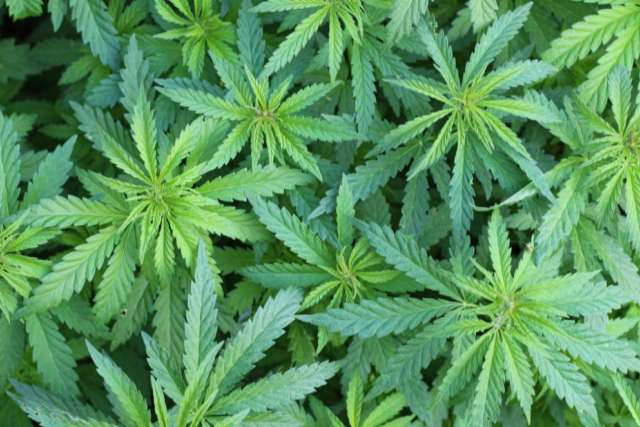The U.S. Food and Drug Administration is warning the public that cannabis products containing delta-8 THC can pose serious health risks to consumers. The public notice, issued Wednesday, May 4, was prompted by adverse event reports received by the FDA and national poison control centers over a 15-month period.
Products containing delta-8 THC, a substance that can produce intoxicating effects, are available in stores and online through a loophole in cannabis laws that makes hemp-derived products legal in most states. Delta-8 THC has not been evaluated or approved by the FDA for safe use in any context, the agency stated.
Further, the FDA is concerned by the proliferation of products that contain delta-8 THC and are marketed for therapeutic or medical uses without approval — a marketing practice the agency calls deceptive, violates federal law and puts consumers at risk.
, PhD, director of the UCLA Cannabis Research Initiative in the , points to two primary concerns surrounding the use of delta-8 THC — a lack of data on the effects of the compound and a lack of regulation over the manufacturing process.
“Unlike delta-9 THC that’s been studied extensively, there have only been four studies in humans looking at delta-8 THC since 1970,” Dr. Cooper notes, adding that the most recent was in the 1990s.
Delta-9 THC is classified as a Schedule 1 drug in the U.S. and it is still federally illegal; however, possession or ingestion is legal in the 18 states that have legalized cannabis for recreational use. It is also legal in those states that have legalized medical marijuana.
“In general, when looking at these reports, delta-8 looks like it’s less potent than delta-9, meaning you need a lot more of it to produce the same effect,” she says. “But we only have these four studies, and there’s still a lot to learn about it.”
Psychoactive substance
Delta-8 THC, or delta-8 tetrahydrocannabinol, is a psychoactive substance found in the cannabis sativa plant, of which marijuana and hemp are two varieties. The compound is produced naturally in the cannabis plant in very small amounts.
“Consumers should pay attention to what’s regulated, what’s unregulated, and pay attention to labels.”
ziva cooper, phd, director of the UCLA Cannabis Research Initiative
To boost the psychoactive effects, concentrated amounts of delta-8 THC are typically manufactured from hemp-derived cannabidiol (CBD), a process that is not regulated. This synthetic conversion can lead to variability in product formulations and product labeling, the FDA report stated.
In addition, some manufacturers may use potentially unsafe household chemicals to make delta-8 THC through this chemical synthesis process, the FDA report stated.
“What this means to consumers is that we don’t know about the quality control with respect to how these products are made,” Dr. Cooper says. “When people think they are taking delta-8 THC it could be there’s actually quite a bit of delta-9 THC in there, which is the primary intoxicating component of the cannabis plant and can produce intoxication as well as anxiety and cognitive disruption."
In addition, she notes, there could be unsafe chemicals and impurities in the product that won’t be found in regulated products.
A February 2021 New York Times article about delta-8 THC products brought recognition of the increased attention to this cannabinoid, Dr. Cooper says.
“Since then," she says, "it seems like popularity has continued to increase with an upward trend in its commercialization and use.”
Products containing delta-8 THC are now available legally in 47 states.

In California, where medicinal and recreational cannabis is legal, products containing delta-8 THC are available at gas stations and tobacco shops as well as dispensaries, she says.
The FDA also is concerned about marketing, including online advertising, that makes these products appealing to children.
“There are all these edibles that can look like candy, gummies, brownies and cookies,” Dr. Cooper notes. “Those types of products are enticing to people who don’t know there’s a psychoactive drug in there, especially kids.”
Hallucinations, anxiety, loss of consciousness
Between December 1, 2020 and Feb. 28, 2022, the FDA received 104 reports of adverse events in patients who consumed delta-8 THC. Of these reports, 55% required medical intervention or hospital admission. The majority (77%) involved adults.
Adverse events included hallucinations, vomiting, tremor, anxiety, dizziness, confusion and loss of consciousness.
In addition, national poison control centers received 2,362 cases of exposure to delta-8 THC products between Jan. 1, 2021 and Feb. 28, 2022. Of those cases, 41% involved people younger than 18, and 40% involved unintentional exposure to delta-8 THC.
Dr. Cooper, whose role at the UCLA Cannabis Research Initiative is to study the health aspects of cannabis products and to educate the public, says it is important consumers are aware of these products as more and different types continue to proliferate in the marketplace.
“Consumers should pay attention to what’s regulated, what’s unregulated, and pay attention to labels,” she says. “And they should ask their medical professionals about these products and ask for guidance in their use.”
Learn more about the .
Jennifer Karmarkar is the author of this article.



